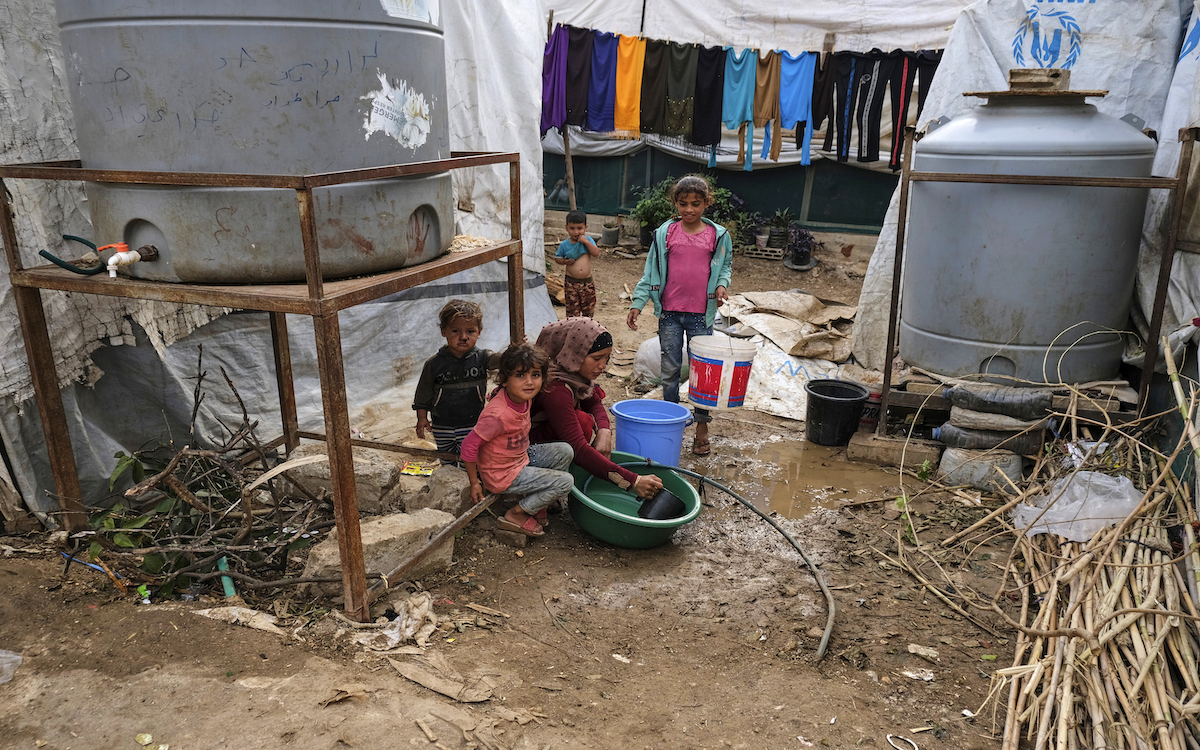
Since the beginning of the financial crisis in late 2019, Lebanon has witnessed a marked increase in hate speech against Syrian refugees living in the country. As tensions have risen, claims that Syrians are responsible for Lebanon’s economic collapse and that they receive cash assistance in US dollars while Lebanese receive nothing, are driving a wedge between these two suffering communities.
The Syrian Civil War and its resulting refugee crisis have certainly contributed to local distrust, but the fact remains that the influx of Syrian refugees into Lebanon is not to blame for Lebanon’s current economic downturn. In fact, the international aid coming to Syrian refugees in Lebanon – and to Lebanon in general – has significantly declined, as resources were reallocated to combating first the global COVID-19 pandemic and, more recently, the Russian invasion of Ukraine.
Meanwhile, Lebanese political leaders refuse to implement vital anti-corruption reforms necessary to initiate an $860 million (USD) economic rescue plan from the International Monetary Fund, while continuing to use refugees as a bargaining chip to pressure the international community to provide more support for Lebanon.
“There is a widespread perception amongst the Lebanese that Syrians are being given money by international organizations and, therefore, they’re better off,” Michael Young, senior editor at the Malcolm H. Kerr Carnegie Middle East Centre in Beirut, told NOW Lebanon. “It’s shameful, but the reaction is not unexpected; the socio-economic situation in the country is a disaster.”
“There are Syrians in Lebanon who are here for economic reasons, but it’s overstated,” he said. “[Some will say] that the Syrians are taking jobs from the Lebanese, essentially making a bad situation worse by their presence, [but] we know that people who have returned to Syria have been arrested. People have been detained. There have been people who have even disappeared. Their safety concerns are real.”
Around 90 percent of Syrian refugee families living in Lebanon are struggling to afford even their basic needs. The economic crisis, combined with the decline in aid from external organizations, has pushed many Syrian refugees into negative behaviors, including begging, borrowing money, taking their children out of school, limiting their spending on healthcare, falling behind on rent, and not processing their personal status paperwork for situational changes like births, deaths, marriages and divorces.
Less than 20 percent of Syrian refugees in Lebanon have legal residencies. This increases their social vulnerability and makes them more likely to find themselves in situations of arrest and criminal violations. The Lebanese Directorate of General Security has also increased the frequency of visits to refugee camps to an almost daily basis, including raids to confiscate items like internet routers and satellite receivers.
“Syrians are living in substandard, dangerous and overcrowded living conditions,” said Devon Cone, Senior Advocate for Women and Girls with Refugees International. “They are limited in what kinds of work they can engage in and it is very difficult for them to obtain work permits. If they have any work at all, it is usually in the agricultural, construction and cleaning sectors.”
“A majority of Syrian refugees are also living in the north and east of the country, which are the poorest parts of the country [and] have been neglected by the Lebanese government,” she explained. “Lebanon not only considers refugees as an economic burden; it also perceives them as a security and political threat, and they are often seen as a destabilizing force in a country that is very fragile at the moment.”
For international authorities operating in Lebanon, like the United Nations High Commission for Refugees (UNHCR), supporting both Lebanese and Syrian communities through the ongoing crisis is challenging, but remains an important priority. In such difficult circumstances, transparency is very important.
“UNHCR provides different types of assistance to refugees in Lebanon,” UNHCR Associate Communications Officer Lisa Abou Khaled told NOW Lebanon. “We are talking about refugees, who fled the crisis in Syria to seek a safe haven; they are refugees by definition, not migrants. This includes material support – such as blankets or mattresses for the winter – or cash assistance for the most vulnerable families, provided in Lebanese pounds. But this assistance is not enough to cover all the essential needs of families, particularly as the economic situation in Lebanon continues to deteriorate.”
“Supporting Lebanese families is also crucial,” she clarified. “In 2022, UNHCR and [our] partners have innovated solutions to Lebanon’s energy crisis through 74 community support projects, [which] have increased Lebanese citizens’ access to sustainable solar-powered energy by providing electricity to primary healthcare centers, governmental hospitals and water stations, benefiting over 1.5 million people.”
The UNHCR has submitted requests to the Ministry of Social Affairs to dollarize the financial assistance currently given to Syrian refugees in Lebanese pounds, but the government has taken no further action.
NGOs remain committed to bridging the gap between Lebanese and Syrians through outreach programs and awareness campaigns, in the hope that both parties can gain a better understanding of the other’s plight.
Robert McKelvey is a multimedia journalist with @NOW_leb. He tweets @RCMcKelvey.







